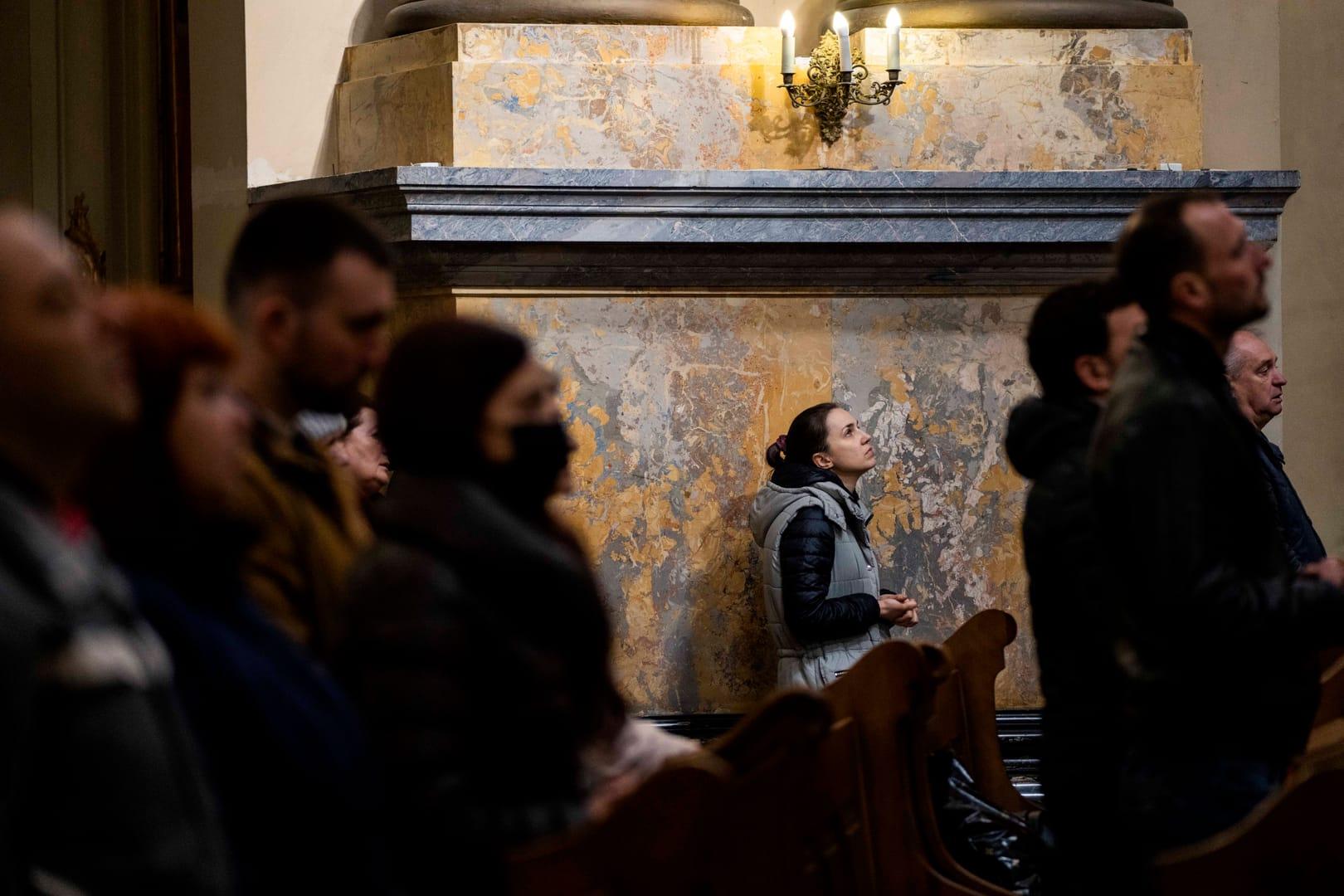ROME – On Tuesday, the Vatican’s embassy in Ukraine voiced indirect opposition to a bill banning the activities of the Moscow Patriarchate in the country, which, among other things, stipulates that all property belonging to the Russian Orthodox Church be nationalized.
In their statement, the Vatican nunciature in Ukraine said they have “noted the existence of public discussions concerning certain churches, their legal recognition, and the respective use of property.”
“In this regard, this nunciature considers it appropriate to state that the Holy See is opposed to any restrictive action taken against any church or religious organization, in any country and in any situation,” they said.
The statement comes after a draft bill was submitted March 29 to the deputies of the Verkhovna Rada, Ukraine’s unicameral parliament, banning the Moscow Patriarchate, including the Ukrainian Orthodox Church of the Moscow Patriarchate – a branch of Orthodoxy in Ukraine that reports to Moscow – from the territory of Ukraine.
In addition, the draft bill stipulates that all property belonging to the Russian Orthodox Church and its authorities, including affiliated religious organizations, synod institutions, and diocesan administration, be inventoried and nationalized within 48 hours of the bill’s ratification.
All religious communities, monasteries, and theological schools belonging to the Moscow Patriarchate are allowed 14 days from when the law enters info force to change their subordination.
Although the bill has yet to be voted on, the deputies of the Uzhhorod City Council, in western Ukraine near its border with Slovakia, filed their own petition on April 8 to ban the activities of the Moscow Patriarchate throughout Ukraine.
The appeal states, among other things, that the ban on activities of the Russian Orthodox Church and the Ukrainian Orthodox Church of the Moscow Patriarchate is to protect national interest and the territorial integrity of Ukraine.
They asked that Ukrainian parliamentarians support the bill, and voiced hope that their decision to file a petition would serve as an example to other communities so that similar petitions will be sent to the Verkhovna Rada from throughout the country.
Debate over the bill comes as priests within the Ukrainian Orthodox Church of the Moscow Patriarchate themselves are collecting signatures for a petition to oust Russian Orthodox Patriarch Kirill from his position of leadership over his support for Russia’s Feb. 24 invasion of Ukraine.
So far, the petition has gathered over 300 signatures. It will be sent to the Council of Primates of the Ancient Eastern Churches in a bid to open legal proceedings against Kirill which, if he is found guilty, could deprive him of office.
This follows a similar petition launched at the beginning of the war that was signed by nearly 300 Russian Orthodox priests, including several prominent members of the Russian Orthodox Church, and which urged Kirill to condemn the war, which he has not done.
Kirill, who has vocally backed Russian President Vladimir Putin’s actions in Ukraine on multiple occasions, is also under fire from the World Council of Churches (WCC), which is currently debating whether to expel the Moscow Patriarchate during its June assembly.
Russia has already been suspended from the United Nations’ Human Rights Council over allegations of war crimes against civilians in occupied Ukrainian cities and villages.
Some Russian Orthodox – including an Amsterdam parish and its four priests and deacon – are already switching allegiances over Kirill’s support for the war, requesting formal permission to leave the Russian Orthodox Church and instead join the Patriarchate of Constantinople.
The Vatican nunciature’s apparent opposition to the bill also comes amid fresh rumors that a potential second meeting between Pope Francis and Russian Orthodox Patriarch Kirill is not off the table but could happen this summer.
RELATED: Pope tells Russian Orthodox leader there’s no such thing as ‘just war’
According to Reuters, the Vatican is considering a possible papal meeting with Kirill in Jerusalem following Francis’s visit to Lebanon, which is tentatively planned for June 12-13.
For months it was rumored that a second meeting between Pope Francis and Kirill would happen sometime this summer, marking the second-ever meeting between a pope and a Russian Orthodox patriarch. The first was Francis and Kirill’s meeting in Havana, Cuba, in 2016.
However, doubt was cast on the feasibility of a second meeting between the two following Russia’s invasion of Ukraine. Kirill’s support for the war and Francis’s firm opposition also made a second encounter seem unlikely, yet both sides appear determined to meet and have said preparations are still underway.
Follow Elise Ann Allen on Twitter: @eliseannallen











